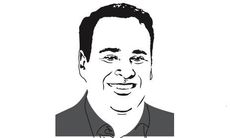Why health-care reform failed last time
There were 80 votes available for health-care reform in the Senate in 1994, but securing them required the endorsement of one man. When Bob Dole turned his back on reform, he doomed it. He also doomed himself.
After President Clinton's 43 percent plurality victory in the presidential election of 1992, I worked as a spear carrier in the U.S. Treasury Department under Secretary Lloyd Bentsen. The plurality view in the Treasury Department throughout 1993 and up through the middle of 1994 regarding the health-care reform situation had six analytical pieces:
(1) There were not even 50 votes available in the U.S. Senate for any health-care reform bill sponsored by President Clinton. It did not matter what the bill included or how good the policy might be, because key Democratic senators placed a higher priority on teaching the hick from Arkansas that he was not their boss; they were determined to vote against it. Thus even though the Democrats had a majority in the Senate, they could not pass Clinton's bill—whatever it was—even if the Republicans did not filibuster it.
(2) There were, on the other hand, 80 votes in the Senate for any health-care reform bill that would be blessed by Republican Senate leader Robert Dole.
Subscribe to The Week
Escape your echo chamber. Get the facts behind the news, plus analysis from multiple perspectives.

Sign up for The Week's Free Newsletters
From our morning news briefing to a weekly Good News Newsletter, get the best of The Week delivered directly to your inbox.
From our morning news briefing to a weekly Good News Newsletter, get the best of The Week delivered directly to your inbox.
(3) Dole was not a cruel or cynical or amoral man, and really did want to make the country a better place.
(4) Dole—with his own long-standing health problems stemming from his World War II injuries—was keenly aware of the importance of health care.
(5) Dole was smart: He understood how the American health-care financing system was broken and how much public good would be achieved by fixing it.
(6) Dole and Bentsen, who had represented Texas in the Senate before becoming Treasury chief, had worked well together throughout the mid- and late-1980s and into the 1990s trying to repair the damage done to America's budget by the supply-siders. (Dole, remember, was the guy who told this joke: "The bad news is that a bus went over the cliff. The good news is that it was loaded with supply-side economists.")
Sign up for Today's Best Articles in your inbox
A free daily email with the biggest news stories of the day – and the best features from TheWeek.com
Therefore, we in the Treasury thought that sometime—probably in the second quarter of 1994—Bentsen's personal policy staff would start feeling out Dole's personal policy staff on the issue. Then President Clinton would invite Sen. Dole to a private Oval Office meeting, after which Clinton would tell the cameras that the health-care legislative process had gotten bogged down and that he was seeking Sen. Dole's wise counsel to break the logjam.
Dole would then announce the Dole Compromise. This would provide the nation with desperately needed health-care reform. And it would provide Sen. Dole with a capstone achievement to a senate career that had been too often misspent spinning his wheels and backtracking.
As we all know, that scenario never happened. The Republican congressional delegation believed that President Clinton was in some sense illegitimate—Mr. 43%—having been elected only because Ross Perot hated George H.W. Bush and sabotaged his reelection. It was their business, they thought, to make Clinton's presidency appear a failure. And Sen. Dole, they said, needed to understand that his path to the Republican nomination and the White House lay not in sharing credit with Clinton for health-care reform but instead in advancing the Republican project of making Clinton's presidency appear a failure by blocking every single White House initiative they could.
In the medium run this was a disaster for Robert Dole: He got the Republican nomination in 1996 but no presidential term, no capstone legislative achievement, and a retirement spent keenly and bitterly aware that he had opened the door to a group of Republican barons—Gingrich and company—whom he liked even less than he liked supply-side economists.
And it was a disaster for the Democratic congressional barons, as well: Yes, they proved that the hick from Arkansas did not run Washington. But they all lost their committee chairmanships after the 1994 midterm election and many of those in Republican-leaning states lost their seats. When the president of your party is unpopular, your chances for reelection decline—even if you have spent most of your time blocking his legislative initiatives.
The really interesting question is: What are America's senators now thinking, in the privacy of their vacation retreats or in the pandemonium of "town halls," about this ancient history? I have drawn what I think are appropriate lessons from it. First, Democratic senators do themselves no good either in the next world or in this when they block sensible initiatives from Democratic presidents. (But what lessons are Democrats Landrieu, Nelson, and Lincoln drawing?) Second, Republican senators do themselves no good either in this world or in the next when they block sensible initiatives from Democratic presidents. (But what lessons are Republicans Grassley, Voinovich, and Hatch drawing?)
Create an account with the same email registered to your subscription to unlock access.
Brad DeLong is a professor in the Department of Economics at U.C. Berkeley; chair of its Political Economy major; a research associate at the National Bureau of Economic Research; and from 1993 to 1995 he worked for the U.S. Treasury as a deputy assistant secretary for economic policy. He has written on, among other topics, the evolution and functioning of the U.S. and other nations' stock markets, the course and determinants of long-run economic growth, the making of economic policy, the changing nature of the American business cycle, and the history of economic thought.
-
 'Criminal trail?'
'Criminal trail?'Today's Newspapers A roundup of the headlines from the US front pages
By The Week Staff Published
-
 Grindr 'shared user HIV status' with ad firms, lawsuit claims
Grindr 'shared user HIV status' with ad firms, lawsuit claimsSpeed Read LGBTQ dating app accused of breaching UK data protection laws in case filed at London's High Court
By Rebecca Messina, The Week UK Published
-
 The best dog-friendly hotels around the UK
The best dog-friendly hotels around the UKThe Week Recommends Take a break with your four-legged friend in accommodation that offers you both a warm welcome
By Adrienne Wyper, The Week UK Published
-
 The trillion-dollar tedium of health reform
The trillion-dollar tedium of health reformfeature
By David Frum Last updated
-
Give health insurers more clout
opinion Health-insurance companies may be widely detested by the public, but the trouble with American health care is not that these insurers are too strong. It's that they are too weak.
By David Frum Last updated
-
Smear Britannia: Conservatives open a new front on health care
opinion In their effort to destroy health-care reform in the U.S., conservatives have been heaping lies upon government-run health care in the U.K. Britons would never surrender their National Health System. Once Democrats pass reform here, Americans won
By Robert Shrum Last updated
-
The lies of August
opinion The stakes are high and Republicans are stooping low. But if health reform falters as a result of GOP demagoguery, Democrats may face a reconstituted Gingrich coalition in 2010.
By Robert Shrum Last updated
-
Sympathy for the Liberals
opinion Everything was in place to achieve the greatest of liberal policy dreams—universal health care. Then the Senate got to work.
By David Frum Last updated
-
Race-baiting the President
opinion Rubert Murdoch, Matt Drudge, and their followers sought to use the Gates imbroglio as a racial rallying cry against Obama. With health-care reform on the line, defusing the hysteria was worth a beer.
By Robert Shrum Last updated
-
On health-care, GOP faces risk, too
opinion Obama's overreaching health-care reform is in trouble. But are Republicans, too?
By David Frum Last updated